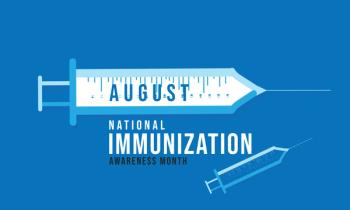
Despite their devastating global impact, chronic respiratory diseases remain a hidden threat in low- and middle-income countries, often going undiagnosed in adults who are already battling other noncommunicable diseases.

Despite their devastating global impact, chronic respiratory diseases remain a hidden threat in low- and middle-income countries, often going undiagnosed in adults who are already battling other noncommunicable diseases.

There are key steps to take that can ensure equitable access to pegcetacoplan, explained Carla Nester, MD, MSA, FASN, who also highlighted remaining questions on long-term outcomes, safety, and pediatric use.

Digital patient profiles and expansive real-world data are reshaping oncology clinical trials, explained Gen Li, PhD, MBA, president and founder of Phesi.

A randomized trial finds that default mailed outreach outperforms active choice strategies for initiating colorectal cancer screening in young adults.

Experts highlight advances in therapies, research on skin of color, and the impact of social determinants of health at the Society for Pediatric Dermatology's milestone annual meeting.

Glucagon-like peptide-1 (GLP-1) inhibitors have proven effective in preventing cardiovascular events, leading to experts promoting their use outside of care for diabetes.

Posters presented at the ASPC 2025 Congress on Cardiac Prevention showed the benefit of participating in cardiac rehabilitation for a variety of cardiac issues.

Investigators discuss how their findings on ovarian cancer mortality trends can guide earlier detection and prevention efforts, while also emphasizing the need for further research.

A lively debate on the pros and cons of using hormone therapy in women to prevent cardiovascular events had attendees engaged throughout.

Varsha Tanguturi, MD, cardiologist and DETECT AS investigator, presented new data on how the findings she and her colleagues saw indicate almost universal increases in rates of aortic valve replacement in patients with severe aortic stenosis (AS), across both provider and patient groups.

Khush Kharidia, MD, a third-year internal medicine resident at UT Southwestern, presented the oral abstract, “Evaluating the Quality, Accuracy and Health Impact of Cholesterol-Related Content on TikTok: A Social Media Analysis,” at ASPC 2025 Congress on CVD Prevention.

Studies found that glucagon-like peptide-1 (GLP-1) receptor agonists were valuable tools in improving outcomes and survival in those with coronary plaque and after ST-elevation myocardial infarction.

Language models and wearable devices are just 2 means of improving the practice of preventive cardiology.

This approval offers a promising new targeted treatment for patients aged 12 and older with C3 glomerulopathy (C3G) and primary immune complex membranoproliferative glomerulonephritis (IC-MPGN), according to Carla Nester, MD, MSA, FASN, addressing a critical gap left by broad immunosuppressive therapies.


Experts provided insights into how past cohort studies have helped to shape preventive medicine for more than 50 years.

National Immunization Awareness Month highlights the importance of lifelong vaccination to prevent diseases, a practice that has averted millions of deaths, proven to be a cost-effective public health strategy, and offers crucial protection even to individuals who are immunocompromised.

Black women had lower moderate-to-vigorous intensity physical activity scores when compared with Black and White men and their White female counterparts, highlighting the need for support across patient subgroups.

Prenatal exposure to per- and polyfluoroalkyl substances (PFAS), a class of persistent environmental pollutants, was linked to significant shifts in infant T helper cell development, raising concerns about long-term effects on vaccine response, immune regulation, and disease susceptibility.

Janus kinase inhibitors can be paired with corticosteroids or used as monotherapy in the treatment of alopecia areata.

The investigators discuss key factors driving persistent ovarian cancer mortality disparities by age, race, and geography, and propose targeted public health and clinical interventions to address them.

Researchers at Sylvester Comprehensive Cancer Center reveal how body composition analysis predicts treatment response in diffuse large B-cell lymphoma (DLBCL), enhancing precision medicine strategies.

A meta-analysis showed that control group outcomes in psilocybin trials for depression were significantly weaker than those in selective serotonin reuptake inhibitor (SSRI) and esketamine trials, suggesting that psilocybin’s large observed treatment effects may be inflated by methodological factors such as functional unblinding and expectancy bias.

During the Addressing Cardiovascular Risk and Intervening Early webinar, experts discussed innovative strategies for cardiovascular disease prevention, emphasizing risk assessment, lifestyle changes, and collaborative care to improve patient outcomes.

A meta-analysis reveals a significant link between chronic kidney disease (CKD) and gastroesophageal reflux disease (GERD), highlighting the need for increased screening and awareness.

A nationwide Danish cohort study demonstrated no increased risk of serious adverse events following vaccination with JN.1-updated mRNA COVID-19 vaccines, reinforcing their safety profile and supporting continued use in high-risk populations amid ongoing viral evolution.

Large language models (LLMs) such as GPT-3.5 and GPT-4 may offer a solution to the costly and inefficient process of manual clinical trial screening, which is often hindered by the inability of structured electronic health record data to capture all necessary criteria.

President Donald Trump has sent letters to pharmaceutical companies, aiming to compel them to lower drug prices in the US to match the lowest prices offered in other developed nations, a move that could significantly reduce costs and disrupt the current system of pharmacy benefit managers.

Gene therapy appears to be a promising approach for a subset of genetic deafness, although challenges remain with development and manufacturing.

In a large fecal immunochemical test-based screening program, high adenoma detection rates lowered interval colorectal cancer (CRC) incidence and mortality, but not CRC-specific survival.

259 Prospect Plains Rd, Bldg H
Cranbury, NJ 08512
© 2025 MJH Life Sciences®
All rights reserved.
